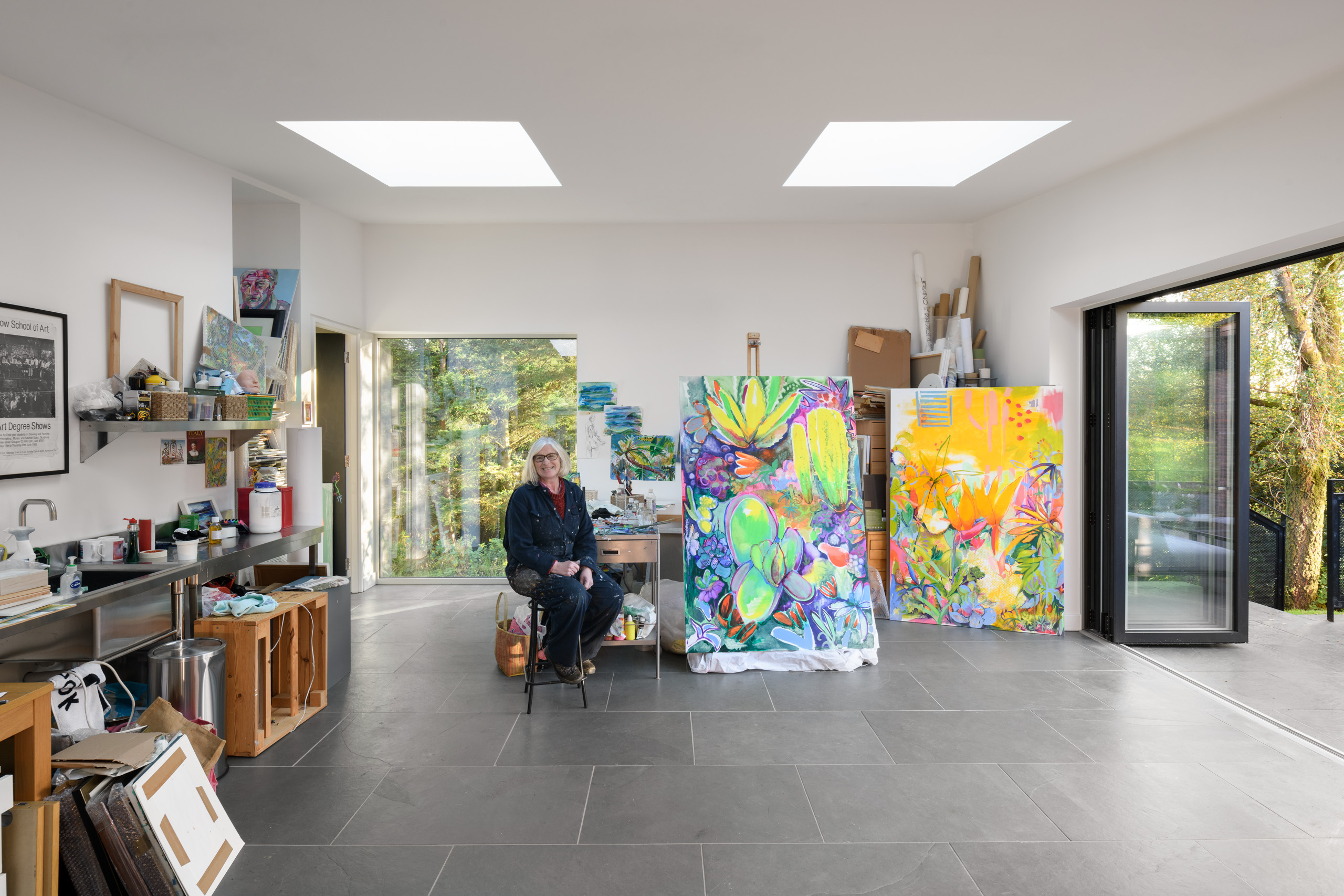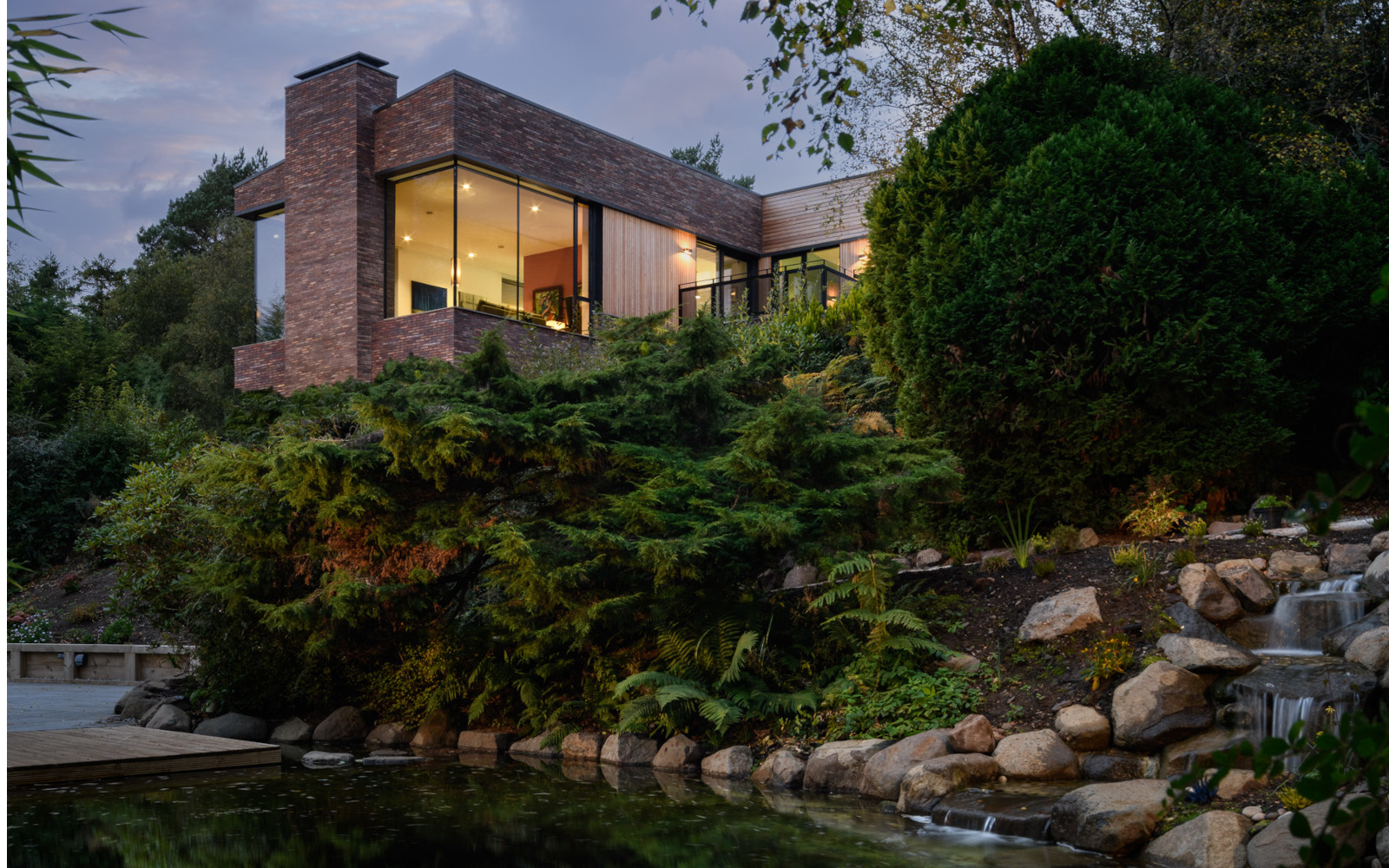
Set 15 miles west outside the bustling hub of Glasgow, in Kilmacolm, The Pond House embraces its quiet location, overlooking the Gryffe Valley and its elegant garden views. Surrounding villas are scattered along the hillside, built to respect each other's privacy - a notable neighbour is Charles Rennie Mackintosh’s ‘Windyhill‘ house.
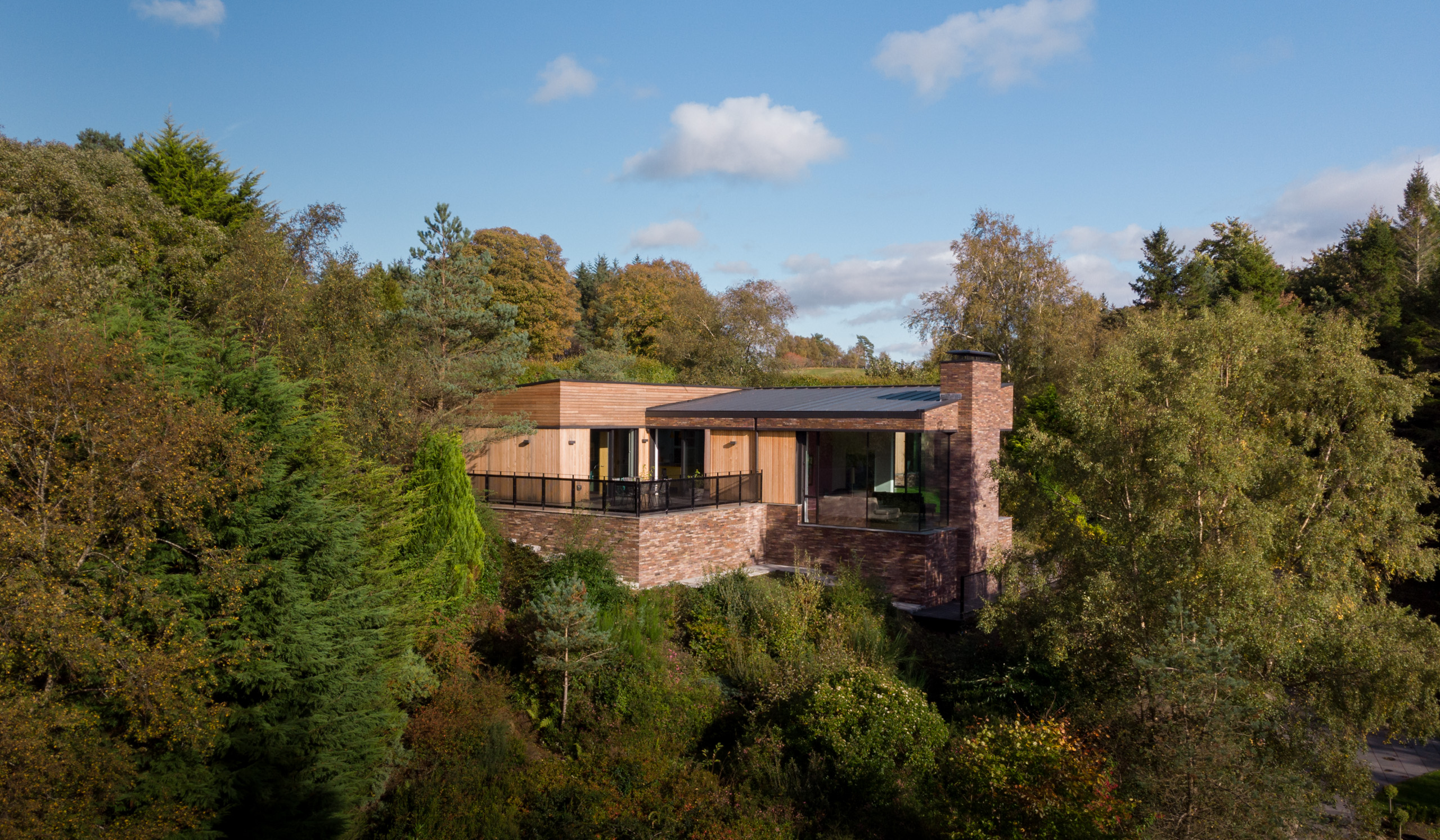
Discover The Pond House in Kilmacolm
The team at Glasgow based studio Technique Architecture and Design took its cues from its clients - one of which is Scottish figurative artist Rosemary Beaton - to create a fluid central space that offers the opportunity to display and enjoy the owners' personal art collection. This resulted in a spacious, contemporary 305 sq m home, accompanied by a 70 sq m detached artist's studio.
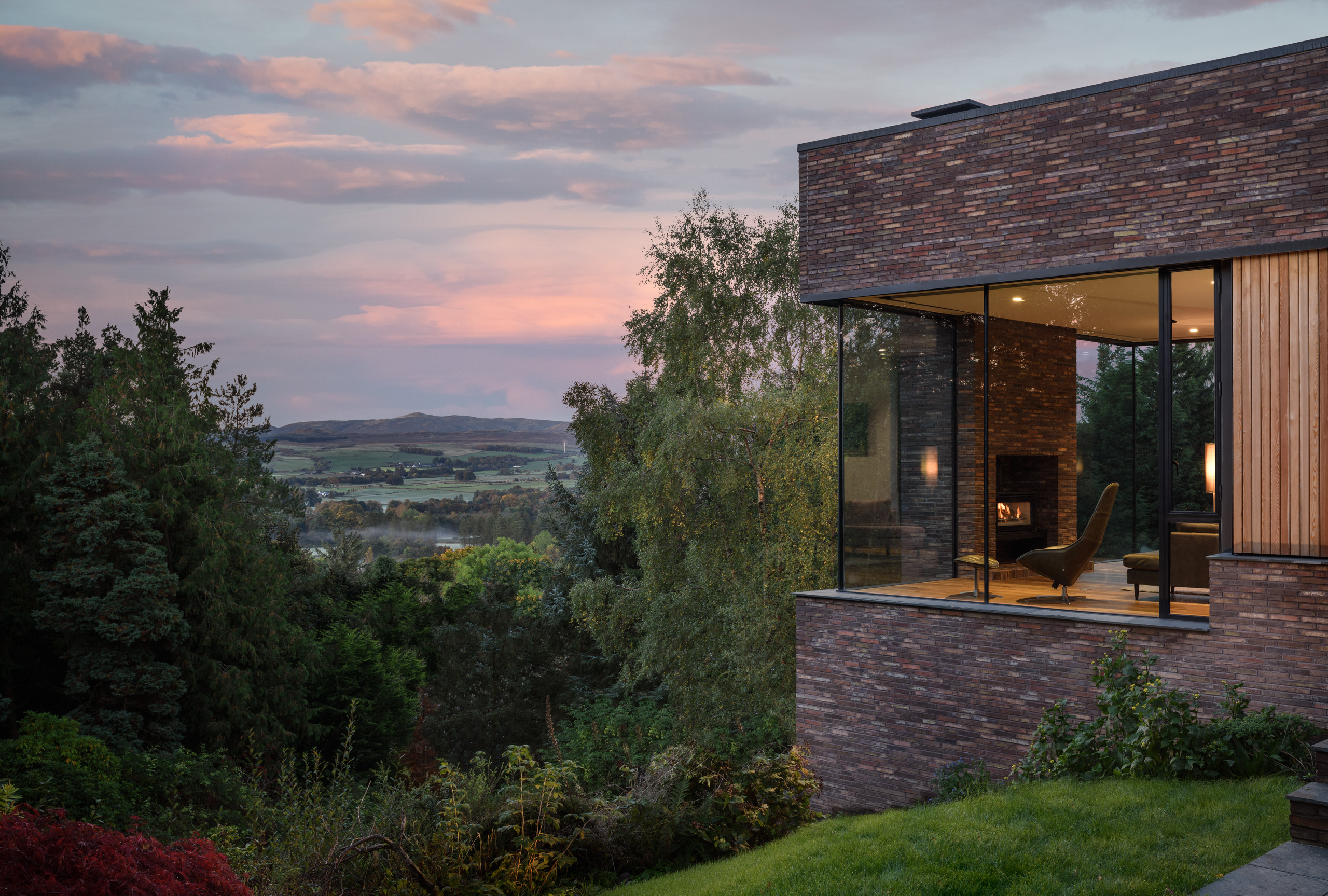
The site is well concealed among foliage on its steep south-facing plot. A narrow pathway is carved into the slope, sheltered by the surrounding trees and mature vegetation. It makes its way through the garden, arriving at a charming pond.
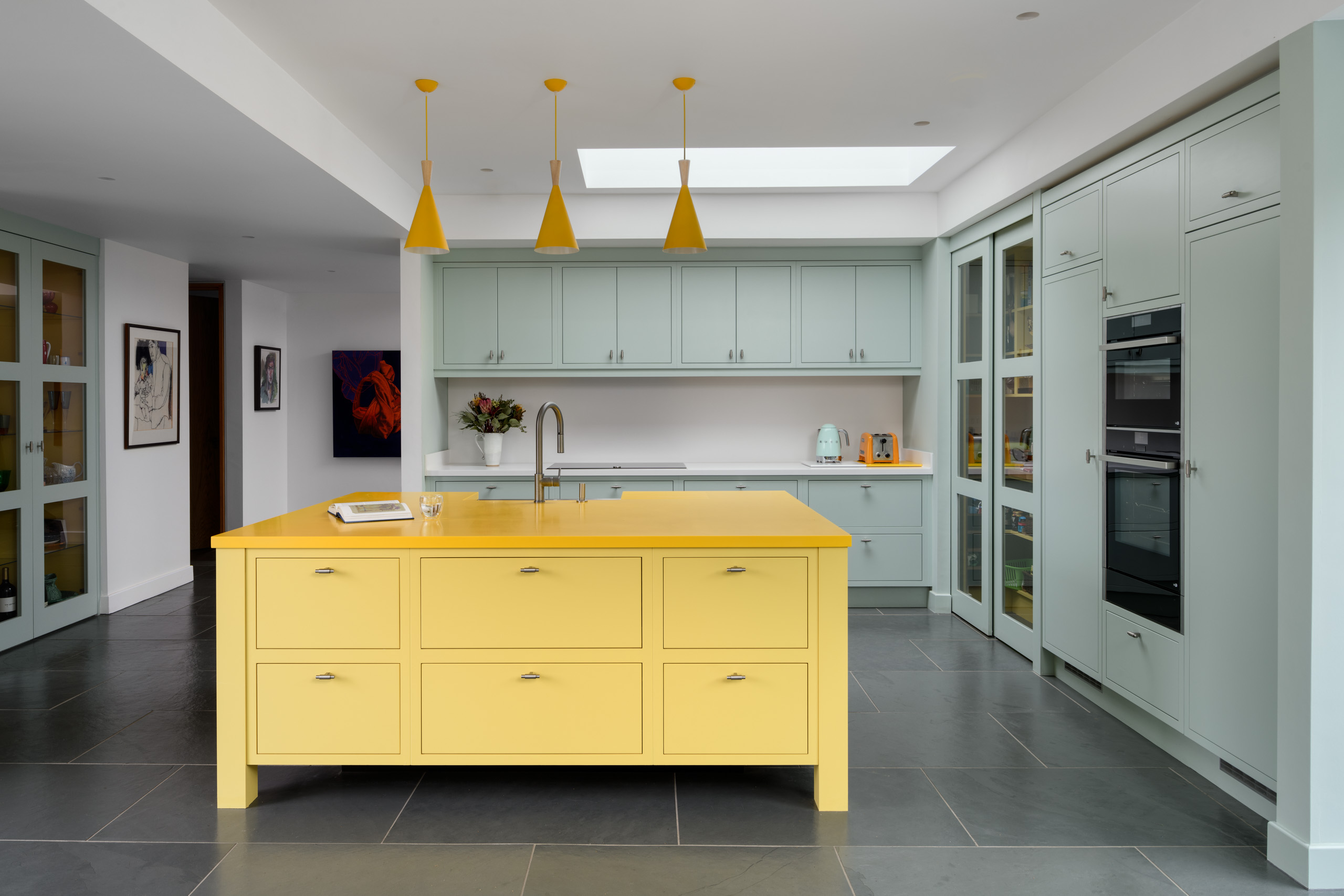
This playful journey into the property adds to a sense of discovery, which reflects the clients approach to art too, and was a source of inspiration for the design.
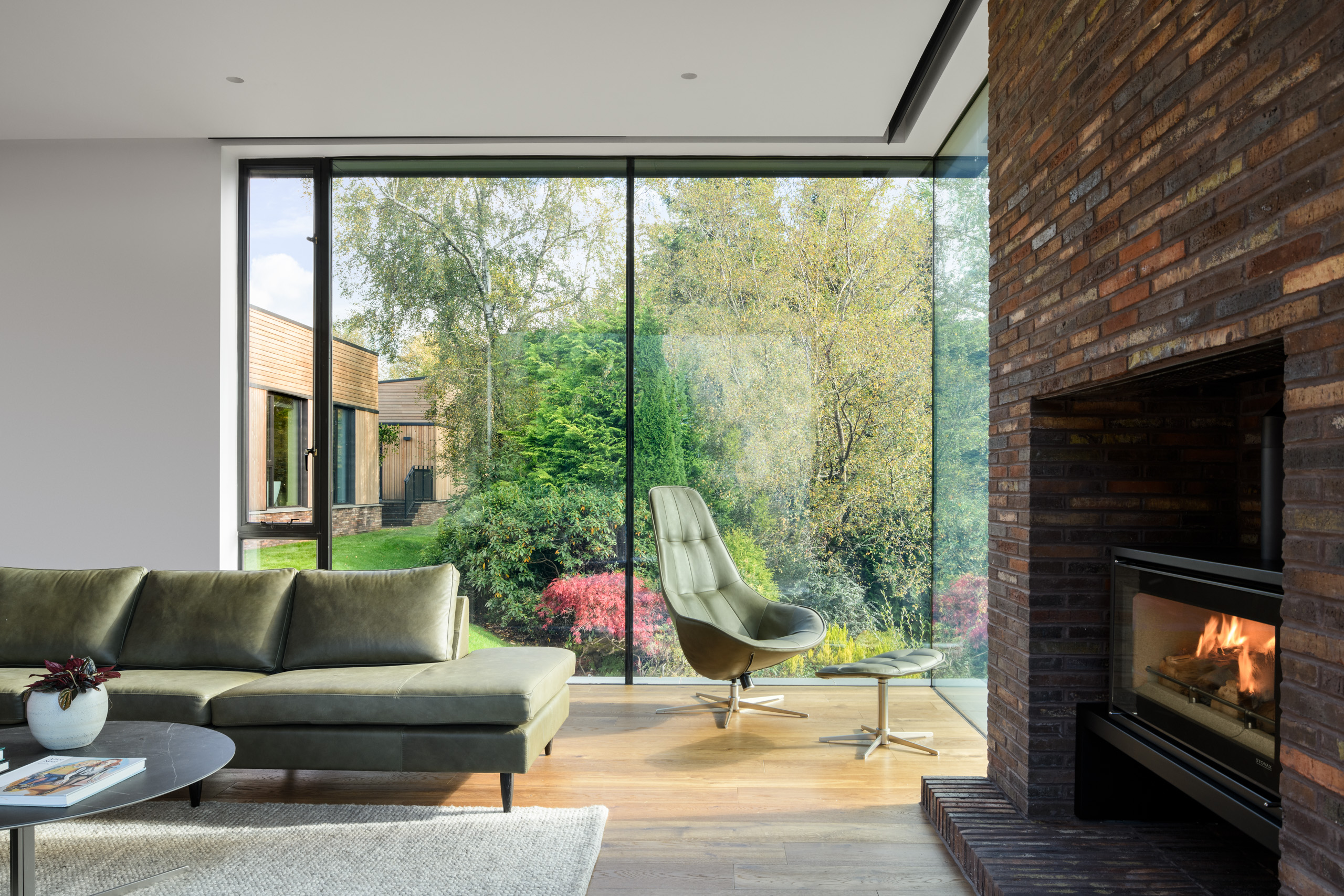
The new construction sits on top of an existing building's footprint and foundation. The old single storey build sits discreetly below the treeline, nestled within its context. Instead of being designed to complement its neighbouring Victorian style properties, the garden and the surrounding environment at Pond House was used as the main focal point for design inspiration.
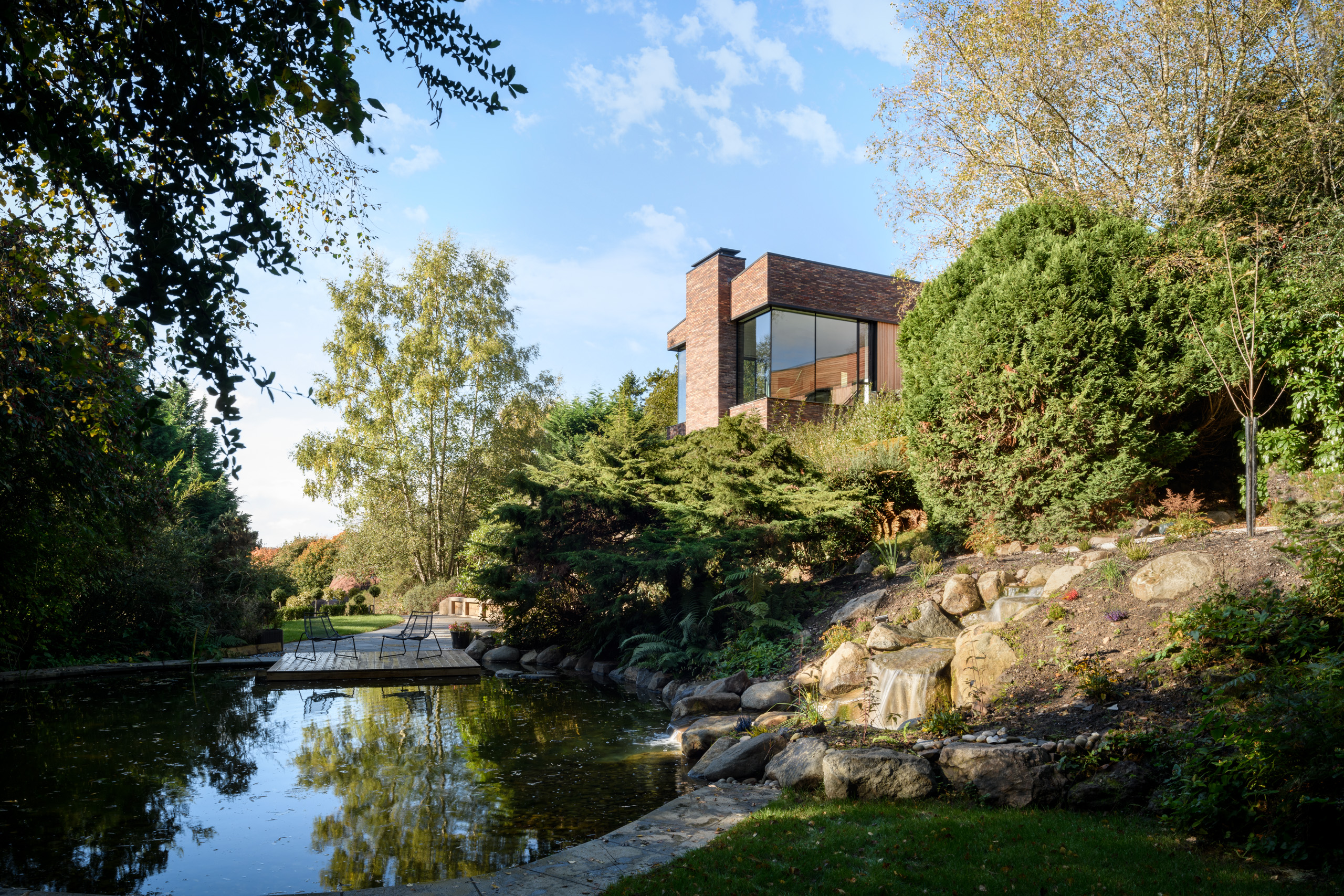
Practice founder Jamie Ross decided early on that the house’s façade of timber and Danish brick would act like a wall to a secret garden which will eventually, with ongoing weathering, become at one with the landscape.
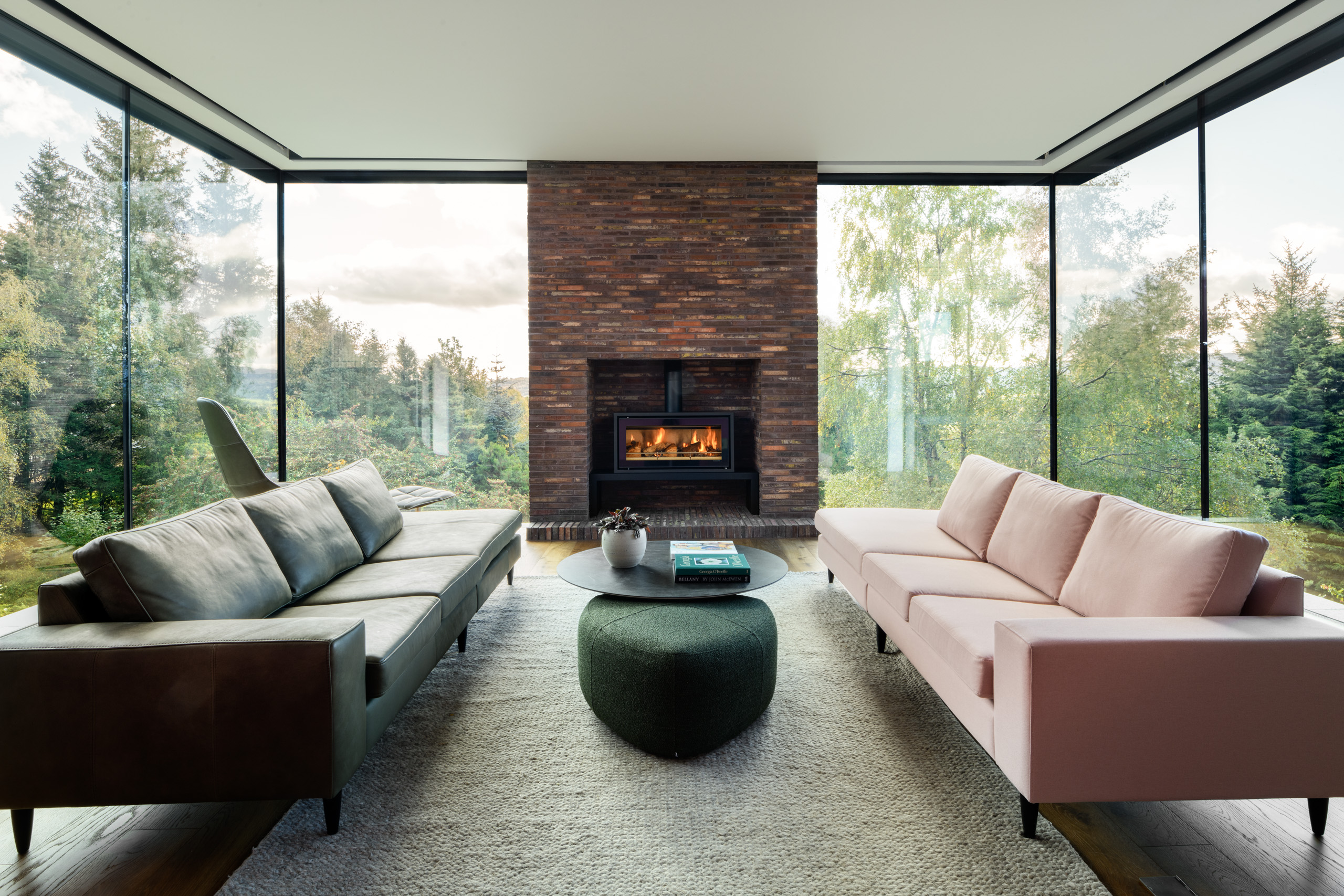
Zinc and glazed architectural details add crispness and contrast to the property. The client's artwork is placed across the home, between the living room, bedrooms and studio. Continuous floor finishes unify different rooms and extend to the outside areas, adding a fluidity that widens the space. Floor to ceiling heights vary in order to help define different zones and offer spatial diversity, spanning from expansive, to cosier areas.
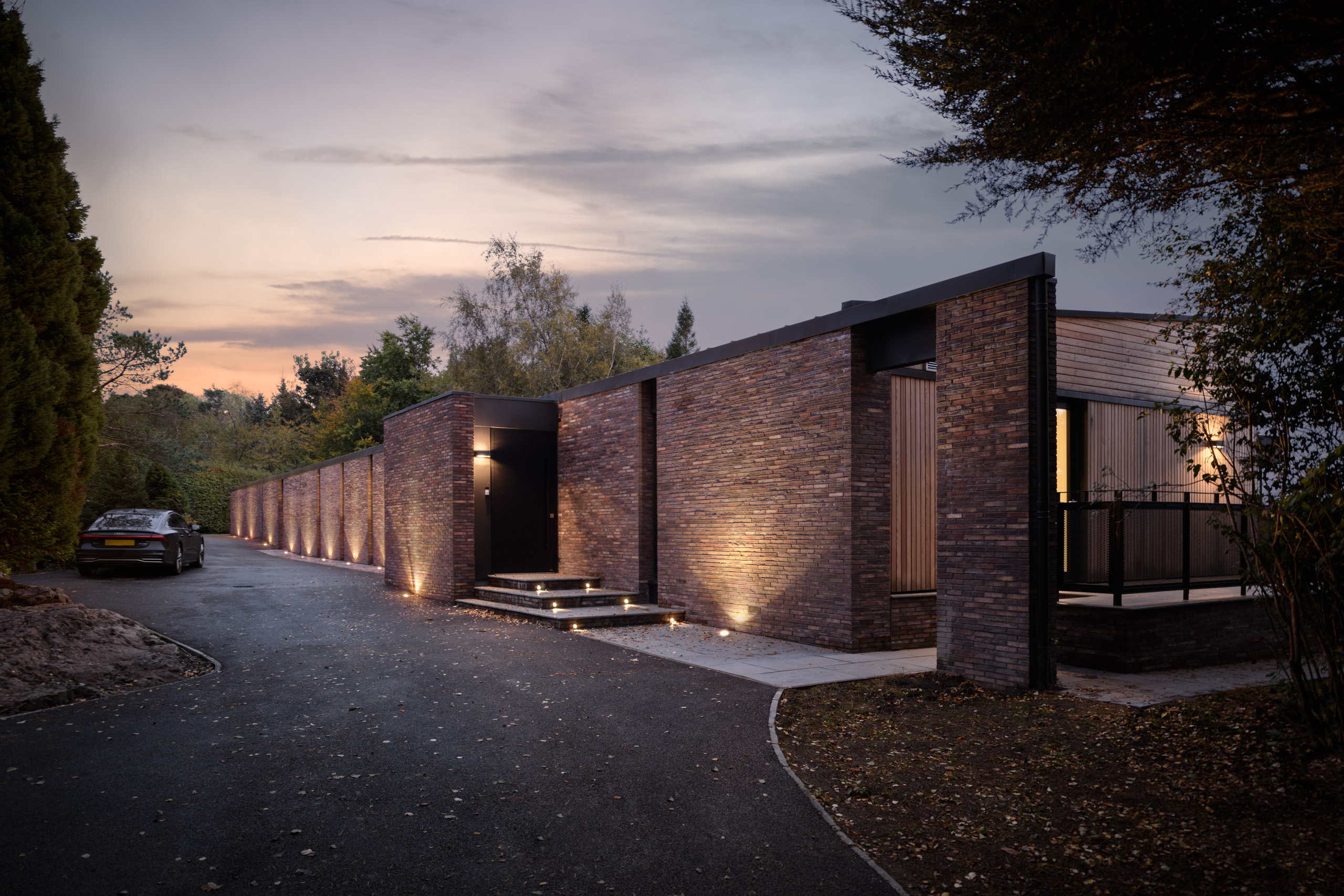
Windows are strategically placed to frame garden views, with the landscape being fully revealed in the living space through a wide panorama, only interrupted by a feature fireplace. Two outdoor terraces connect the kitchen and living room, and they can be used to sit out and enjoy the sun as the days begin to stretch longer. A private open courtyard separates the house and studio.
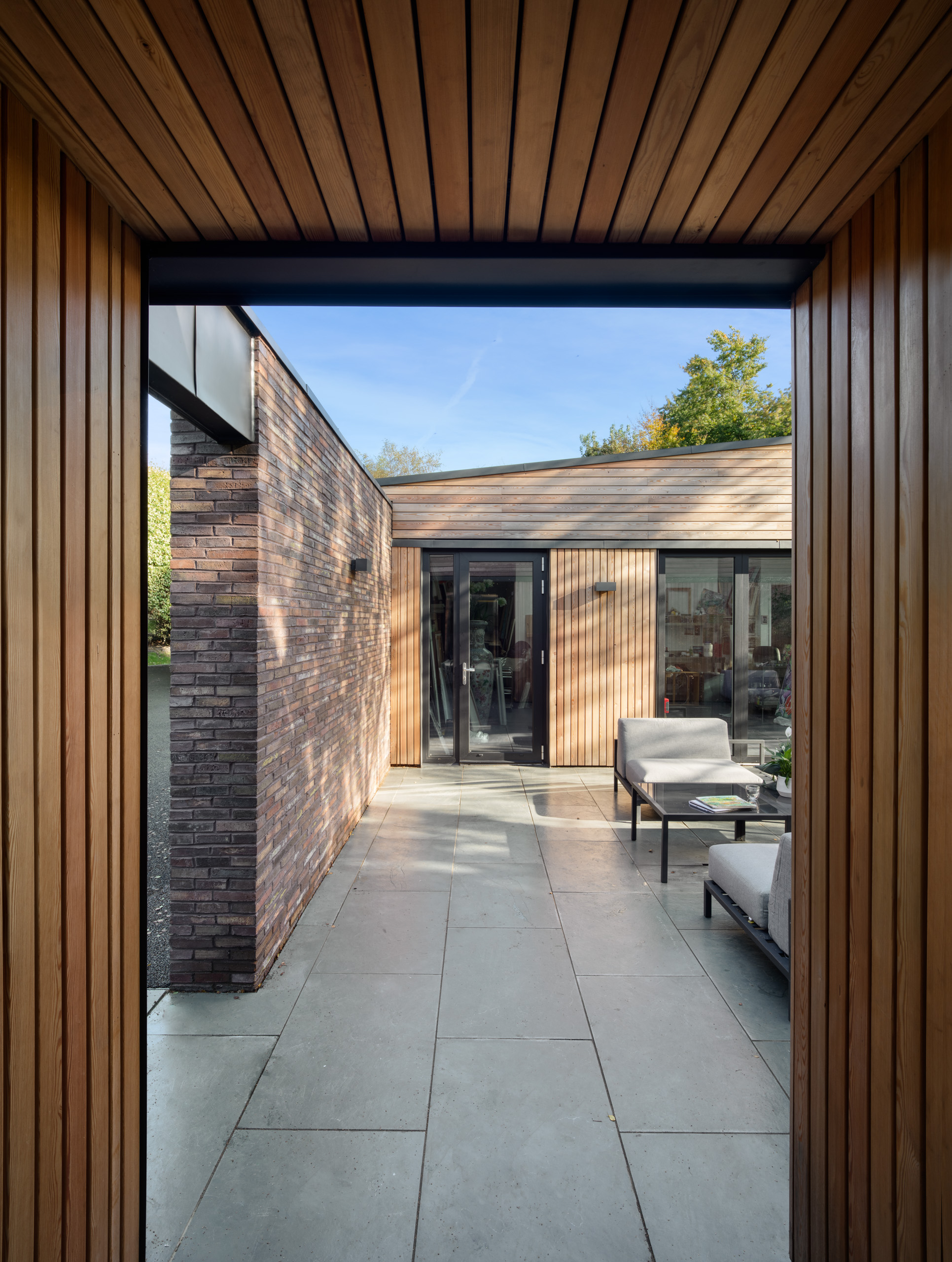
The build uses a variety of materials which would age gracefully. Bricks were coal-fired, leaving a varied finish on each individual one. The resulting colours pick up on the red tones of the site’s igneous rock. Lighter-feeling, untreated cladding contrasts the brick texturally, while slate and oak flooring, and full height doors reinforce the architectural attention to reference the natural surroundings at every turn.
